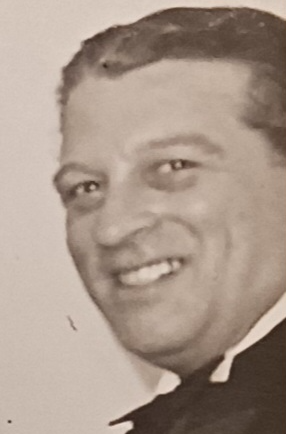Richard Franz Alexander

Personalia
Born:
Died:
Profession:
Persecution:
Imprisonment 12.03.1938 - 02.04.1938,
Dachau concentration camp 02.04.1938 - 27.09.1939,
Flossenbürg concentration camp 27.09.1939 - 02.03.1940,
Dachau concentration camp 02.03.1940 - 05.06.1940
KZ Number:
Memberships
Curriculum Vitae
Richard Franz Alexander was born in Vienna as the legitimate son of the merchant of the same name Richard Alexander and Maria, née Tihelka. After elementary school, he attended the first four years of secondary school and in 1917 and 1918 the k.u.k. Naval Academy in 1917 and 1918. After the defeat of Austria-Hungary, he went to the commercial academy and graduated in 1921. He also took the French interpreting exam. Between 1921 and 1924, he completed several traineeships and internships abroad before setting up his own business as a photo reporter and publisher in 1925. He speaks English, Italian, Spanish and Portuguese. He marries the French-Austrian Andrée Jellinek-Mercedes. She is the daughter of the widowed Jewish k.u.k. Consul in Nice Emil Jellinek-Mercedes (son of the rabbi and scholar Adolf Jellinek, who also married Theodor Herzl, among others) and the Catholic Anaise Tholer. In 1926, their daughter is born, who is later considered 'half Jewish' according to the Nuremberg Racial Laws. [Note: This daughter would later marry the resistance fighter Ludwig Steiner]. In 1932, he was sentenced to a month in prison for fraudulent crida.
In 1933, Richard Alexander joined the Vaterländische Front and became district leader of Vienna-Hietzing. He held this position until 1937, when he was commissioned to set up the Storm Corps of the Vaterländische Front, of which he became the leader. With the Sturmkorps, he consistently pursued National Socialists in Austria and infiltrated National Socialist groups.
As head of the Sturmkorps of the Patriotic Front, Richard Alexander witnessed the downfall of a free and independent Austria when the German Wehrmacht invaded on March 12, 1938. Richard Alexander was arrested on the night of the invasion and deported on April 2, 1938 on the so-called 'Prominent Transport' to the Dachau concentration camp. After the German invasion of Poland, the SS evacuated Dachau concentration camp at short notice and Richard Alexander was transferred to Flossenbürg concentration camp. From there, he was transferred back to Dachau concentration camp on March 2, 1940 and released on June 5, 1940.
He moved to Berlin and subsequently became a correspondent for a publishing house in Paris. During this time, his marriage broke up. On May 3, 1943, Richard Alexander was drafted to Berlin as an interpreter for the OKW. He married for the second time in June 1943. As an interpreter, he witnessed the liberation of Austria in May 1945.
After his return to Austria, here to Rankweil in Vorarlberg, Richard Alexander joined the Federal Ministry for Foreign Affairs in 1947 and became press attaché in Buenos Aires. After the death of Hans Sidonius von Becker and the dismissal of Otto Günther, he became interim head of the embassy. One year later, he joins the ÖVP-Kameradschaft der politisch Verfolgten und Bekenner für Österreich.
Places
Residence:
Persecution:
Citations
Österreichisches Staatsarchiv (ÖStA)
Österreichische Botschaft Argeninien
Gabriele Wagner, Privat
Matricula Online
